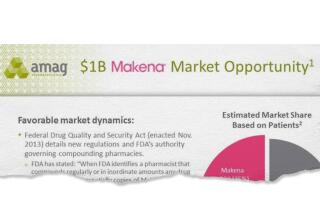O.C. Firm Gets FDA Warning on Product Claims
- Share via
Federal regulators have notified Wakunaga of America Co., a Mission Viejo manufacturer of dietary supplements, that it is making inappropriate medical claims for a product it’s selling as an intestinal aid.
In a letter June 18, the Food and Drug Administration said the company’s labeling for its product, Probiata, indicates it’s “intended to treat, prevent or mitigate ‘disorders such as diarrhea, constipation and yeast discomfort caused by antibiotic usage’ “--which amount to claims that apply to drugs rather than dietary supplements.
The agency’s letter reiterates statements made in a letter May 22 to Wakunaga’s president, and it directs the company to submit its claims to drug regulators. Drug laws require a company to prove a product is safe and effective before it can be sold.
Mitsuru Takiura, Wakunaga’s president, said the company believes it made appropriate “functional” claims for the product because “we are talking about the function of the intestine.”
However, after correspondence with the agency, he said, the company is now reviewing how it might best “express or restate” its claim.
Agency officials estimated that it has issued such “courtesy” letters to manufacturers of supplements on 40 objectionable claims since Congress passed the Dietary Supplement Health and Education Act of 1994. Five California companies have received such notices.
Still, the agency hasn’t taken any regulatory actions against the companies, such as demanding that they change their labeling or having their product seized, say officials. The agency awaits direction from a presidential commission regarding how the 1994 law should be implemented.
On Tuesday, the Presidential Commission on Dietary Supplement Labels issued a draft report that included a recommendation that the FDA step up its enforcement actions. The commission’s final recommendations are expected this fall.
Takiura said Wakunaga did its best to meet regulators’ expectations when it initially crafted labeling for Probiata, but lacked guidance because the agency has yet to establish its policies under the 1994 law.
“We were shooting in the dark,” he said.
The product, composed of “friendly” acidophilus bacteria, has been used safely for many years in Japan and Europe and the bacteria are commonly found in yogurt, he said.
The agency began issuing such notices in the wake of the 1994 law that made a distinction between products sold to treat or prevent disease--commonly called drugs--and those used to support a body’s structure or function.
The law allowed makers of dietary supplements, including herbal remedies, minerals, vitamins and amino acids, to make claims that their products affect a body’s structure or function.
Products claiming to treat, mitigate or prevent disease are considered drugs that must pass stringent regulatory tests on safety and effectiveness.
Takiura said the company launched Probiata this year, is advertising the product in health magazines, and selling it through drugstores. Sales thus far are minimal, he said, calling the product “a newborn baby.”
Wakunaga, based in Mission Viejo for a decade, has operated in the U.S. for 25 years and is a unit of Wakunaga Pharmaceutical Co. of Osaka, Japan. Its main product, Kyolic, is aged garlic extract, a dietary supplement sold to promote healthy circulation, according to its marketing department.
Takiura said the company employs about 75 people nationwide but wouldn’t disclose its sales volume.
More to Read
Inside the business of entertainment
The Wide Shot brings you news, analysis and insights on everything from streaming wars to production — and what it all means for the future.
You may occasionally receive promotional content from the Los Angeles Times.










